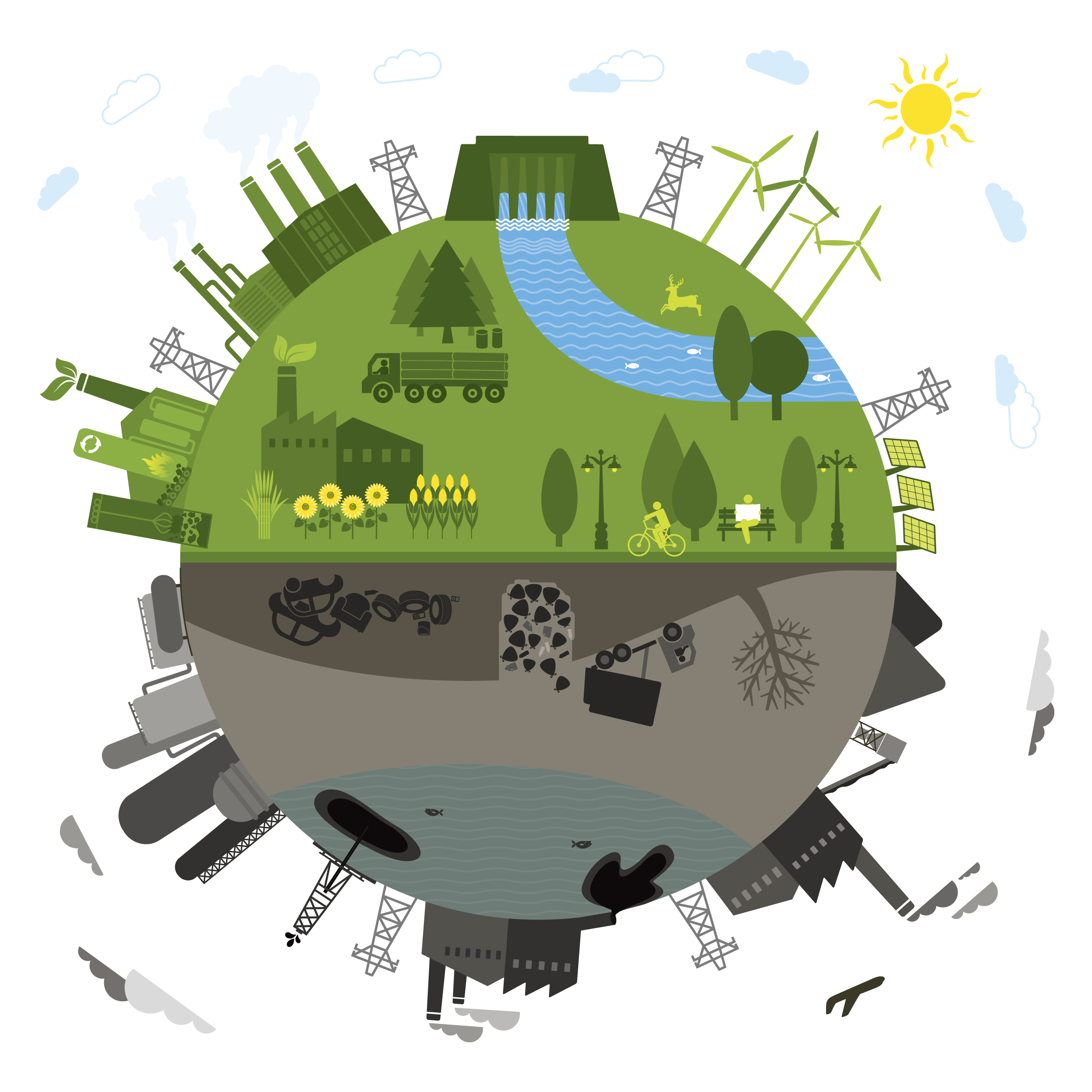From the predicted heat waves lasting for 100 years to the Arctic Ice melting by 2080 to islands in Pacific being completely submerged, climate change’s projected future outcomes seem dire. The pressing issues generated from climate change poses serious threats for millions around the globe. However, the projected gloomy future could further the development in sustainability. Sustainable energy is often seen as alternative energy source, but in order to counteract climate change, a transition away from a fossil fuel based energy system is needed. Although climate change is inherently destructive, the dangers from climate change have furthered development in for sustainability and depending on future negotiations, the prospects for sustainable development should be accelerated due to an increased demand for alternative energy.
First of all, if climate change did not result in significant risks or simply did not exist, there would be not necessarily be a need to develop sustainable energy. Unfortunately, the human-induced green house gas emissions result in an imbalance in Earth’s climate systems. This imbalance has called for reform in many different sanctions in climate change negotiations. As policies become more restrictive with CO2 emissions, the demand for alternative energy sources should increase because there will be a need to utilize less carbon intensive energy sources. In areas where the current global energy system is lacking, renewable energy is well suited. For example, sustainable energy’s benefits range from: providing energy to some of the poorest regions to improving human health to creating new jobs. In particular, the major benefit is that it avoids adding more greenhouse gases into the atmosphere, which will have long-term benefits in counteracting climate change. The wide array of benefits from sustainable energy and the increase in demand for sustainable energy to achieve climate goals has resulted in climate change furthering development in sustainability.
Although the energy demand is currently concentrated on carbon emitting sources, the risks from climate changes have already resulted in a shift towards renewables and projected outcomes indicate advancement in renewables. Specifically, a trend towards renewables has already begun for renewable shares have “jumped from 5% in 2003 to 23% in 2008” (Sawin and Moomaw 2009). In addition, areas ranging in size and location are implementing sustainable developments by increasing energy efficiency and utilizing renewables. The current increasing trends are projected to extend seen in the global energy scenarios that show “a gradual shift to renewables” and hypothetically, “a transformation or step-change in how the world produces and uses energy” (Sawin and Moomaw 2009). In order to meet the suggested climate change emissions targets in the IPCC, a need for renewable energy may increase.
It is key to note that climate change will negatively impact various aspects, which includes the development of sustainability. The threats from climate change are and will cause economic, social and political strain. Due to finances, some developed nations will be less vulnerable and have the funds to further sustainability. Whereas, some developing nations do not have the funds to invest in expensive sustainable resources and need to focus available funds to alleviate climate change damage, limiting sustainable development. Fortunately, there are several strategies that can help solve the issues around implementing sustainability. One strategy is implementing a carbon tax, which would raise fuel prices and encourage the transition to alternative energy. Another possible strategy is for developed nations to provide finances for sustainable development in developing regions. An additional strategy is ratifying more aggressive short and long-term policies that will help eliminate the support for fossil fuels. Overall, sustainability has is weaknesses, but it is necessary in transitioning away from fossil fuel emissions.
The need for sustainable development would not be as pressing if our current fossil fuel energy system did not have lasting and negative impacts on the planet. Climate change could undermine economic and social goals, but if negotiations are successful there could be a development in sustainability. As conditions worsen, there will hopefully be more stringent carbon emission reductions. Hence, if future negotiations are progressive there could be a movement towards further developing suitability and moving away from carbon-emitting energy sources.
[youtube_sc url=”http://www.youtube.com/watch?v=O5lBwrJcUOk” title=”Sustainable%20Development”]
Work Cited
Sawin & Moomaw, Renewable revolution: low-carbon energy by 2030, Worldwatch Institute, 2009.

